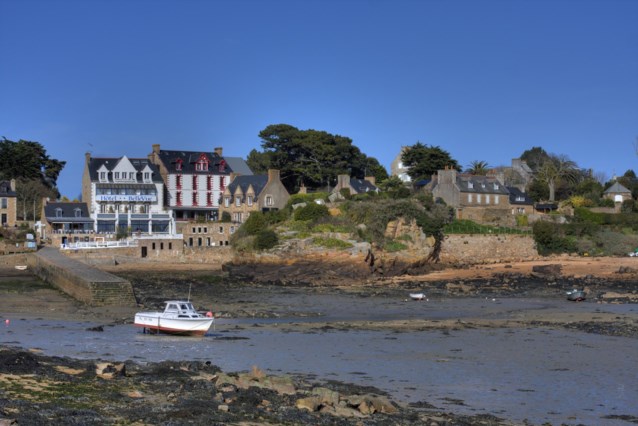France’s Ile-de-Bréhat is following Venice’s lead in taking measures to curb mass tourism. The islet has introduced a tourist quota to ensure the island – and its 420 residents – are not overwhelmed by visitors.
The small island of Ile-de-Bréhat, located north of France, has had enough of mass tourism. The local government wants visitors to have a pleasant experience on the island, and for residents not to feel overwhelmed by all the tourists.
That is why the board has decided that a maximum of 4,700 visitors are allowed on the island per day, from Monday to Friday between 8:30 and 14:30. “There are no regulations on Saturdays and Sundays, traditionally not very busy days in Bréhat,” says mayor Olivier Carré. Permanent residents, local workers and second home owners are an exception to the rule.
Better experience
The measure came into effect on Monday and will remain in place until 23 August. Controlling visitor numbers is the responsibility of the ferry companies, which provide the 10-minute crossing to Bréhat. “We are asking ferry companies to encourage people to book in advance and to regulate the flow,” says Carré.
“We’re not trying to stop people from coming. We just want to make sure they have a better experience when they do come.” And the island has proven in the past that it works. Last year, the government tested the measure once again. Again, a limit of 4,700 visitors per day. “Once you go beyond that number, nothing works anymore. There’s nowhere to park, all the restaurants are fully booked, there are no more rental bikes available and the bike paths are way too busy,” the mayor said.
Without the quota, everything is square. And tourists also go home unhappy when there are too many people on the island. “As many as 30 percent of the visitors said afterwards that they were dissatisfied with their day.”
According to the mayor, the economic impact of the measure is “extremely small”. “We have to find the right balance for everyone and we will review the impact of this every year,” he adds.
